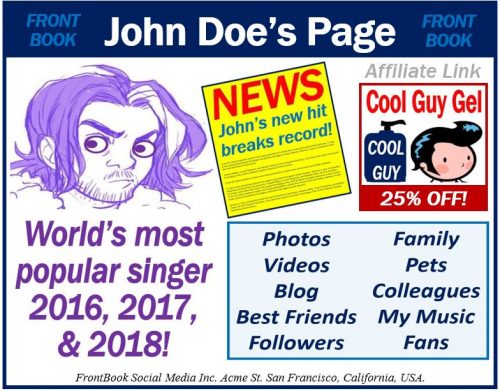In the US, federal regulators require social media personalities to inform their viewers about paid marketing. In other words, promotional payments for gadgets and products that appear on their channels. However, a team of researchers found that such disclosures are uncommon.
Arunesh Mathur, Arvind Narayanan, and Marshini Chetty, all from Princeton University, wrote about their study in the journal Proceedings of the ACM on Human-Computer Interaction (citation below).
Their study focused on affiliate marketing. In affiliate marketing, the seller pays a commission to social media celebrities for driving sales. Content creators who produce commentary, pictures, and videos get a reward when their followers buy something. Specifically, when they purchase items after clicking on affiliate marketing links that are included in their social media posts.
The researchers extracted affiliate marketing links from 2.1 million Pinterest pins and approximately half-a-million YouTube videos. They selected the samples randomly. They identified 18,237 Pinterest pins and 3,572 YouTube videos with affiliate links from thirty-three marketing firms.
The research team found the links by searching for characteristic patterns in the URLs. Marketers place these characteristics in the URLs to track readers’ clicks.

What is social media?
Social media refers to the collective of online communication channels where organizations, people, and companies create and share content. They share, for example, social network sites and blogs.
Examples of online social media platforms are Pinterest, Facebook, YouTube, Instagram, Google+, and Twitter.
Marketing approaches with disclosures
The research team used natural language processing techniques to find disclosures of marketing relationships within the pins’ and videos’ descriptions.
They identified three types of disclosures:
- Affiliate Links: in which the viewer could read such written disclosures as “Disclosure: These are affiliate links.”
- Channel Support: such as “Shop using these links to support the channel.”
- Explanations: such as “I am an affiliate with Amazon, which means I get a small commission when you buy through my links.”
The ‘Affiliate Links’ disclosures were the most common regarding this type of disclosure. Lead author Arunesh Mathur said:
“These are exactly the kinds of disclosures the Federal Trade Commission says people shouldn’t be using” because their meaning is not always clear to users. That was a very surprising finding.”
Only half of the study participants interpreted the meaning of ‘Affiliate Link’ disclosures on Pinterest correctly. In the disclosures that were paired with YouTube videos, 65% understood what they meant.
Ninety-five and 85% percent of the participants understood what the ‘Explanation’ and ‘Channel Support’ disclosures (respectively) meant.
FTC not exercising its authority enough
The Federal Trade Commission (FTC) has issued warnings to top social media influencers regarding marketing disclosures. However, the FTC has not fully exercised its authority to prosecute those that don’t comply with the regulations.
The authors believe that the regulators should take broader legal action against affiliate marketing firms that fail to disclose. They also recommend that social media platforms make it easier for creators of content to disclose marketing relationships in a standardized way.
The researchers are also developing a web browser extension. This extension would automatically flag some kinds of paid content. Additionally, they are working on computational methods to spot other kinds of hidden advertising on social media, including product giveaways.
They are also working on computational methods to detect sponsored content. These hidden advertising techniques are not as easy to identify as affiliate marketing is.
Citation
“Endorsements on Social Media: An Empirical Study of Affiliate Marketing Disclosures on YouTube and Pinterest,” Arunesh Mathur, Arvind Narayanan, and Marshini Chetty. Proceedings of the ACM on Human-Computer Interaction, Volume 2 Issue CSCW, November 2018, Article No. 119. DOI: 10.1145/3274388.
